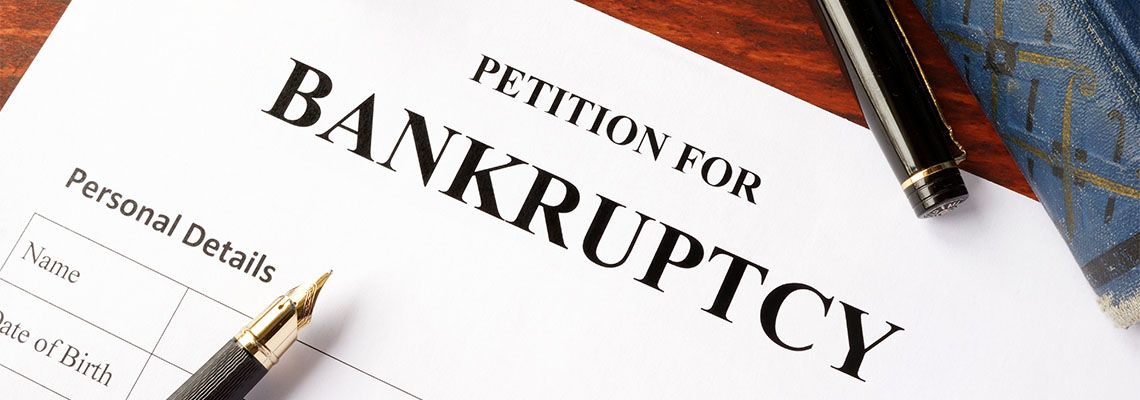
When Is Filing Bankruptcy a Good Option?
Declaring bankruptcy is a big step and one that many people are rightfully nervous about taking. However, the decision to file for bankruptcy can also be the single most important step to take control of your debt issues and get your finances back on track. That said, this process should never be undertaken alone, nor should you do it without first properly researching all your options to ensure bankruptcy really is the right choice.
An experienced bankruptcy attorney can be an indispensable asset during this time. If you live in the El Dorado, Arkansas, area, including Magnolia, Camden, Columbia County, Ashley County, or Ouachita County, call us at Rushing Law Firm, PLLC.
Assess Your Current Financial Situation
If you’re asking yourself, “When should I consider filing for bankruptcy?”, the first step you need to take is properly assessing your financial situation. Only once you have a clear idea of your finances can you make an informed decision about what to do next. Consider the following:
Money Coming In vs. What Is Owed: The first and simplest thing to figure out is how much money you have coming in (your income) versus how much money is going out (your debt and regular expenses). Though this may seem straightforward, it will take a lot of work to get an accurate number. Be sure to include all your regular expenses, including rent, utility payments, car payments, and regular spending on things like gas, groceries, subscription services, and debt.
How Much Debt You Have: The next step toward debt relief is determining how much debt you actually have. This could include personal loans, student loans, credit card debt, medical bills, unpaid taxes, mortgages, payday loans, or business loans. You’ll need a solid number to work with to determine whether bankruptcy really is the right option for you. Note that not all debt is considered “dischargeable debt” (i.e., debt that can be written off when you declare).
Are Collectors Calling?: If you're experiencing calls, emails, or letters from credit collectors, you’re likely pretty far into your debt troubles. Declaring bankruptcy can help put an end to this through something called an automatic stay, which can immediately help stop these.
Understand Your Bankruptcy Options
In general, individuals have two main choices for declaring bankruptcy: Chapter 7 and Chapter 13.
Chapter 7 bankruptcy: Chapter 7 is also called liquidation bankruptcy since you’ll be required to liquidate assets before you can discharge debt. However, the vast majority of people will not have to sell off any assets. To qualify, you typically must earn under the median income for a family of your same size in your state. Dischargeable debts under Chapter 7 include medical debt, credit cards, and personal loans.
Chapter 13 bankruptcy: Also called the “wage earners” plan, Chapter 13 allows people to set up a repayment plan that consolidates all their debts together under one single payment. There is also no requirement to sell off assets, making this a good choice for those who want to protect their property. They must follow this plan for three to five years after which time any remaining dischargeable debt will be written off. Like Chapter 7, debts like medical debt, credit cards, and personal loans can be included in this.
Know Which Debts Won’t Be Forgiven
It’s a common misconception that once you declare bankruptcy, all your debts can be forgiven, but this is not the case. There are some debts that cannot be discharged and you will still be responsible for paying, even after your declaration has been approved by the courts. These include:
Child support or any other court-ordered payments
Alimony
Taxes, although there may be some exceptions for back income taxes over three years old (Consulting with an attorney is the best way to find out if this is an option for you.)
Student loans
Although these debts ultimately cannot be discharged, if you file under Chapter 13, you will be able to include these into your repayment plan, which can help reduce the amount you owe on them.
Consider Your Assets That Could Be Affected
Lastly, our clients are also frequently concerned that they’ll lose their assets if and when they declare bankruptcy. This is valid, but there are ways to address it. For example, under Chapter 7, filers are required to liquidate any non-exempt assets to pay off their creditors before a judge will approve their case. However, most assets that Chapter 7 filers have will be considered exempt such as a car or home. If you’re concerned about losing assets, you should consider Chapter 13 since you’ll be allowed to keep these.
Find Your Best Path Forward
If you’d like to sit down with a reputable bankruptcy attorney to discuss your options for filing bankruptcy, reach out to us at Rushing Law Firm, PLLC in El Dorado, Arkansas.